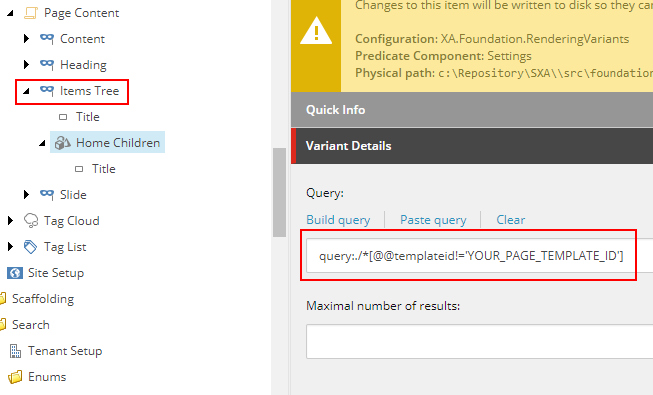My team is creating a new site using SXA and I am working on a page which will display a list of event locations and a list of events scheduled at each location. In the content tree, Events are items underneath the Location item.
We know how to display a list of event locations using a Page List using the process described here. Unfortunately, we can't seem to figure out how to add another another Page List to the event location Page List to display the events.
For the event location Page List, we have created a Variant Definition with a Placeholder which worked just fine. We have added a Page List to the the Placeholder and have been able to configure the second Placeholder to display a given set of data for each location. We can't, however, figure out how to either 1) display the child items of the location or 2) configure a query that takes the current item as a parameter.
We have already tried setting the Source Type on the event Page List to Children, but nothing is displayed.
